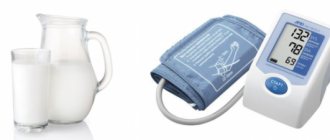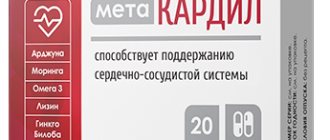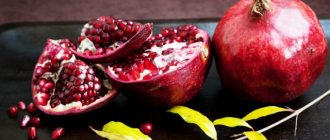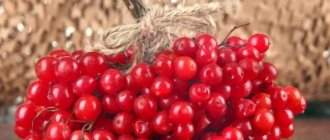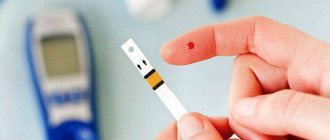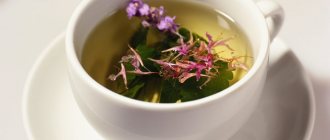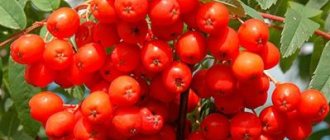Ginger root is firmly established in kitchens; it is a common ingredient in beauty products and is used in traditional medicine.
The spice is recommended to be included in the diet to reduce the risk of colds and stimulate the body's metabolic processes. But what is the reaction of the cardiovascular system to the spice: does ginger lower or increase blood pressure? Should heart patients and hypertensive patients eat it?
How does it work: does it decrease or increase?
How does ginger affect blood pressure - does it lower it, increase it, or leave it unchanged?
The root tuber contains active substances that can affect blood vessels. However, their concentration is not enough for the spice to specifically lower or increase blood pressure. The only noticeable effects that ginger root has are:
- stimulation of the nervous system;
- stimulation of the stomach, digestive glands and intestines.
So does ginger raise or lower blood pressure? The general irritating effect of the root improves the overall tone of the body, the person becomes more active and mobile. Thanks to these features, ginger indirectly increases blood pressure. At the same time, no effect has been identified that allows the spice to lower blood pressure.
Composition and properties
To assess the degree of usefulness of ginger for the heart and blood vessels, it is necessary to know its composition. The rhizome contains up to 3% essential oils, which provide ginger with its characteristic odor. Contains:
- calcium;
- zinc;
- iron;
- magnesium;
- potassium;
- selenium;
- vitamins A, C, B1, B2, K, E;
- amino acids;
- Omega 3 and Omega 6 fatty acids;
- folic acid.
Fresh and dried, it has anti-inflammatory, analgesic and antispasmodic effects.
Ginger root has healing properties and is used to prevent cardiovascular diseases
Benefits for the Heart
How does ginger affect the heart? Can it reduce the load on the heart muscle and strengthen it? As in the case of blood vessels, the active substances contained in the root tuber are not enough to have a direct effect. At the same time, ginger can be harmful to the heart due to its tonic effect, which increases heart rate and increases the risk of heart attack.
The spice should be excluded from the diet for people suffering from coronary heart disease, angina pectoris, or taking antihypertensive or antiarrhythmic medications.
Is it possible for hypertension?
So is it worth using the spice for hypertension? You can often hear that ginger is effective for high blood pressure. This statement is erroneous, since the root does not have properties that would lower blood pressure.
The indirect effect of spice on the cardiovascular system can slightly increase blood pressure. But if for a healthy person this goes unnoticed, then it can cause harm to a hypertensive person.
In addition, the disease is often accompanied by the use of antihypertensive drugs, and ginger for hypertension in some cases weakens their effect.
Ginger for high blood pressure should be consumed in small portions, after prior consultation with a doctor.
Effect of Ginger Root on Blood Pressure
The product has a beneficial composition, but has a strong effect on people with blood pressure problems. The widely known ginger tea helps thin the blood and improves blood flow, which is accompanied by an increase in blood pressure.
This effect may be beneficial for people with hypotension who exhibit significant sensitivity to weather changes. But with high blood pressure, consumption of the root vegetable is accompanied by a significant risk of developing angina pectoris and even a heart attack, therefore, for hypertensive patients, ginger drinks are used with extreme caution and only with the permission of a doctor.
We recommend that you find out what the expiration date of ginger is.
Recipes for how to take
The spice is often recommended to be used to remove toxins or for arterial hypotension.
Ginger is often recommended for high blood pressure: recipes for preparing the root are varied and numerous. However, their effectiveness is questionable, and the spice itself cannot replace consultation with a doctor and medications. Ginger products should be taken with caution.
If your health worsens when consuming it, or side effects occur, then the amount of spice eaten is reduced or completely excluded from the diet.
Spice is contraindicated in the following cases:
- liver diseases;
- ulcers;
- gastritis;
- allergies.
Due to the fact that the root increases arousal in the fetus and small children, it is advisable for women in late pregnancy, during lactation, and children under 3 years of age to stop using it. Older children - take minimal doses.
Lemon, garlic and ginger root for cleaning blood vessels
Lemon, garlic and ginger for cleaning blood vessels is a common recipe, which is credited with the ability to lower cholesterol levels and cleanse blood vessels of cholesterol plaques.
It must be understood that not a single ingredient in the mixture has a similar effect. If your cholesterol level is elevated, you should consult a doctor rather than resort to self-medication.
However, eating the root with lemon and garlic reduces the risk of catching a cold. If desired, you can prepare pasta with the following ingredients:
- 200 g honey;
- 1 lemon;
- 4 – 5 cloves of garlic;
- 100 g fresh ginger root.
Grate or grind the lemon, ginger root and garlic. Pour honey over everything and mix. Take one spoon half an hour before meals. The resulting mixture can be eaten as is or diluted with water and drunk.
It is advisable to keep the paste in the refrigerator between doses. The mixture will be very fragrant, so it is better to store it in a glass jar with a tight-fitting lid.
Does ginger with lemon and garlic increase or decrease blood pressure? These products do not have properties that can lower blood pressure. But the concentrated content of ginger root in the mixture gives a strong tonic and warming effect. Therefore, the paste can slightly increase pressure.
Tea and infusions
Drinks that retain all the properties of the root are often made from the spice. The most common:
- ginger tea;
- tinctures.
Below are several detailed recipes for their preparation.
Ginger tea
Classic recipe:
- 20 g ginger root;
- 1 lemon;
- 50 g honey;
- 750 ml water;
Grate the spine. Pour water into a saucepan and put on fire. Pour the chopped root into it and squeeze out the juice from the lemon. After boiling, cook for 5-10 minutes. Cool the drink a little, then add honey. Leave for a few minutes.
If desired, add a pinch of black pepper, which increases the tonic effect of the drink.
Simple recipe:
- 30 g fresh ginger root;
- half a lemon;
- 60 – 80 g honey;
- 1 liter of water.
It is better to use a thermos to brew tea. The root with lemon is ground or cut into small slices. Everything is poured into a thermos, honey is added. The mixture is poured with boiled water, cooled to 80 – 90°C.
If desired, honey can be replaced with sugar, mint, cinnamon, cardamom or cloves can be added.
Does ginger tea raise or lower blood pressure? Hot tea and additional spices enhance the warming and tonic effect of ginger, so drinking the drink may slightly increase blood pressure. Ginger tea does not have the ability to lower blood pressure. The same applies to root tinctures.
Infusions
Long lasting recipe:
- 40 – 50 g fresh or 3 tablespoons ground ginger root;
- 1 liter of vodka;
- 100 g honey.
Preparation:
- Peel and chop the root as much as possible.
- Place the resulting slurry in a glass bottle, add honey and vodka, and stir.
- Close the container tightly with a lid and let it brew for 2 weeks in the dark.
- The bottle should be shaken every few days.
- After 2 weeks, remove the tincture and filter; gauze with cotton wool wrapped in it is used for filtration.
- Pour the finished drink into bottles and seal tightly.
The tincture is stored for 2 years.
Quick recipe:
- 30 g ginger;
- 40 g honey;
- 1 lemon;
- half a liter of vodka.
Preparation:
- Peel and grind the ginger root.
- Remove and chop the lemon skin.
- Mix the root with the zest, pour lemon juice over them, let it brew for 5 minutes.
- Add vodka and honey to the mixture. Mix everything and let it brew for 10 minutes.
- Strain through cheesecloth with cotton wool.
- Pour into a bottle and seal tightly.
The drink can be stored for 1 year.
Pickled
Does ginger lower blood pressure after pickling or increase it? The marinade changes the taste, but retains all the properties of the root. Therefore, pickled ginger will still have a stimulating effect on the nervous system and gastrointestinal tract and can sometimes increase blood pressure, but not lower it.
Pickling somewhat dampens the natural pungency of the root tuber, so you can eat more of it than raw. So you need to use the pickled root with caution to avoid negative effects on the body.
Treatment with ginger
Recipes for medicinal drinks from the root of the plant can give strength, relieve headaches, and normalize blood pressure. There is an opinion that it is useful for both hypertensive and hypotensive patients. But in case of sudden pressure surges and too large differences between average blood pressure values, it cannot be used.
Recipe for a heart-boosting drink
Ingredients:
- ginger root;
- lemon;
- green tea;
- honey.
Several cloves of the root are grated, poured into a teapot with green leaf tea, and poured with hot water (80°). Leave to brew for 5-7 minutes, pour into a cup, add lemon and a little honey. Healthy and warming ginger tea is ready. Drink in the evenings before bed or during the day to relieve attacks of weather sensitivity.
To strengthen the heart and blood vessels, prepare a ginger drink based on green tea with the addition of lemon and honey.
Tea with ginger, strengthens blood vessels
How to Brew Ginger Root as Tea
Ingredients:
- raisin;
- rose hip;
- dried apricots;
- ginger;
- honey.
Wash the dried fruits and pour them into a thermos in any quantity. Peel the ginger, cut into thin slices and also place in a thermos. Pour hot water over the contents, leave for 2 hours, drink with honey up to 2 times a day. This drink relieves spasms in blood vessels, strengthens their walls, nourishes the heart muscle, and warms the body.
Ginger has contraindications and side effects. It is not recommended to abuse it and include it in the diet too often
Feedback about use
People who use ginger root leave various reviews about how lemon, ginger and garlic, root tincture and simply adding spice to food help with blood pressure. Some people say from personal experience that ginger lowers blood pressure. Others say that ginger increases blood pressure.
It is quite natural that the root leads to a reaction in the body that can slightly increase blood pressure. If eating food with spices significantly increases blood pressure, or vice versa lowers it, then this is not caused by ginger root, but by other factors.
Admission rules
Before using any new means to normalize blood pressure, you should first consult a doctor. It is recommended to start drinking teas only in the morning. It is also important to check how ginger tea affects the body and blood pressure. To do this, you need to measure your blood pressure before drinking tea, and 30 minutes after drinking tea. After comparison, you can evaluate how ginger affects blood pressure. It will be clear whether ginger increases the indicators or decreases them. Then you can decide whether to continue the course of treatment.
It is noted that for the full effect of treatment to occur, a course of 1 to 2 weeks is needed. During this time, the necessary microelements will be in sufficient concentration to have a powerful therapeutic effect.
The result of using ginger tea may be different for each person, it all depends on:
- individual characteristics of the body;
- degree of hypertension;
- are there any concomitant diseases;
- what medications are still being taken by the person.
The body's sensitivity to this component is of great importance. If there is a positive reaction of the body to ginger, then treatment should be carried out systematically.
